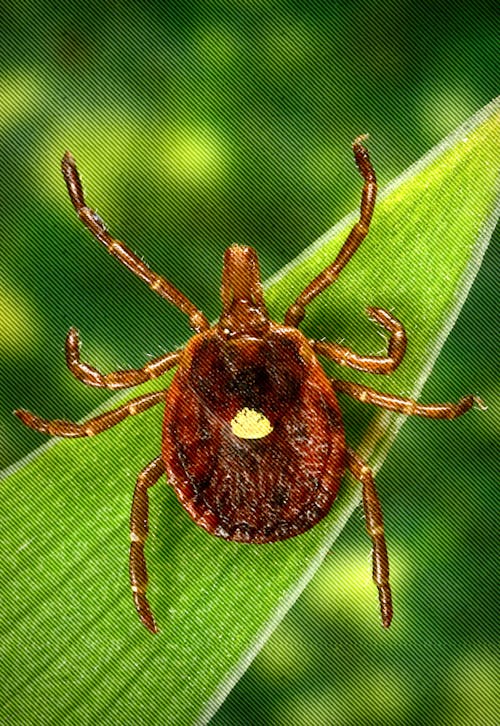Ticks that can make you allergic to red meat have arrived from hell
This is taking the vegan cause way too far.

I’m iron deficient, which means that meat is a delicious staple of my diet. I’m not picky either; I’ll eat it in prosciutto form, slathered in barbecue sauce, or tucked into a taco. So for people like me, recent hysteria over an increasingly common tick that can cause a severe, lifelong allergy to red meat has been pretty alarming.
The tick, named the lone star tick in reference to the single white dot on its females’ back, is becoming more common across the East Coast and as far North as Maine because of hotter temperatures that allow them to survive the winter. The tick’s bite triggers a rare allergic reaction to red meat called alpha-gal syndrome, which can initially cause rashes, shortness of breath and, in some cases, be life threatening, according to the CDC. What makes alpha-gal syndrome particularly difficult to identify is that symptoms tend to occur anywhere between two and six hours after eating red meat.
Although alpha-gal sounds like a sorority synonym for a Girlboss, it’s much more sinister in the context of the lone star tick. It’s important to note that only a small percentage of people who are bitten by the lone star tick will develop a red meat allergy, but those who do have pretty scary outcomes.
Scientists don’t know entirely why these tick bites are causing red meat allergies, but one theory is that the lone star ticks pass on the alpha-gal molecule from animals such as deer to the humans they bite afterward, per the Washington Post. Our immune systems create antibodies against the alpha-gal, which is present in all red meat; everytime we eat red meat after that, our bodies react violently to its presence.
Alpha-gal syndrome was first discovered in 2008 and tens of thousands of Americans could have it by now, per The Atlantic. Similar to Lyme disease, which is spread by the black legged tick, alpha-gal syndrome is not currently curable and there’s a lot we still don’t know about it. For now, the best way to prevent alpha-gal syndrome is by avoiding brushy, wooded areas and using tick repellants, per the CDC, and to immediately seek treatment if you notice a tick bite.